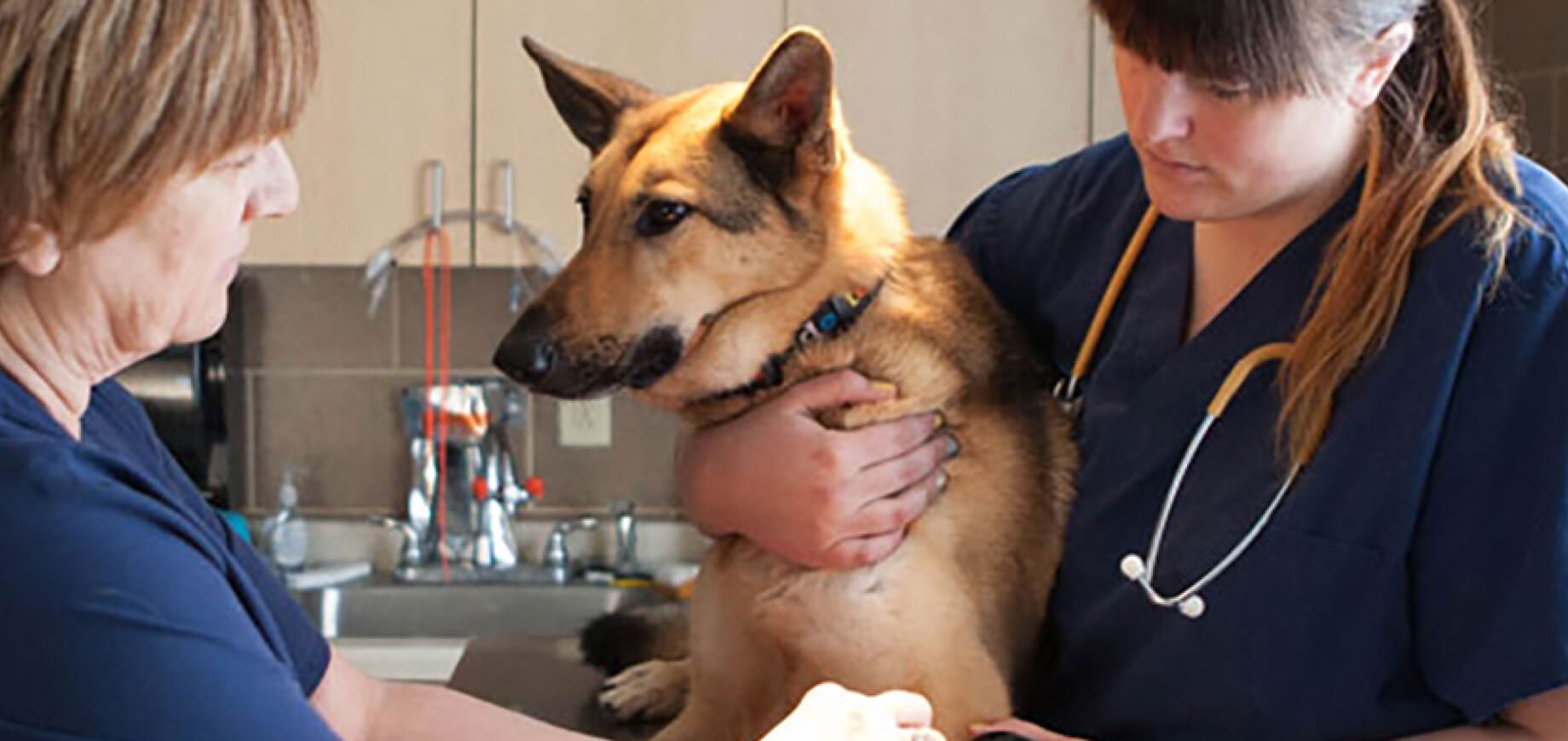Find products that match your dog’s needs

Dogs can develop allergies just as we humans do, and these allergies can often manifest the same way they do in humans. Skin allergies, food allergies and inhalant allergies are some of the common types of allergies in dogs. Some of the symptoms of allergies in dogs include rashes, sneezing, inflammation of the skin, diarrhoea, and vomiting. In this blog, we will tell you all you need to know about allergies as a pet parent.
Many dog allergy symptoms are mild and can be treated with over-the-counter medication. However, these allergies can cause discomfort, pain, and even disrupt your dog’s ability to be happy and carefree. Sometimes, a dog allergy can develop into a serious issue if it remains undiagnosed and untreated for a long time. If you notice any symptoms of allergies in dogs, it is strongly recommended that you see a veterinarian immediately. Avoid practicing any home remedies or medicating your dog on your own.
Yes. Just like humans, dog allergies that are inhalant or dermatological are often inherited. Some dog breeds have also been found to be more susceptible towards having certain types of allergies.
As a pet parent, you need to know some common signs of allergies in dogs so that you can take timely action. Your pooch may be suffering from allergies if they exhibit the following symptoms:
The most common dog allergies are caused by allergens that affect the skin such as pollen, mold, dust mites, and grass. Other common allergies include food allergies and reactions to fleas. Here are four of the most common allergies in dogs.
As the name suggests, food allergies are caused when your dog reacts to a specific ingredient in its food, treats, or any other edible article. Common symptoms of food allergies in dogs are either visible on the skin in the form of rashes and skin irritation or as gastrointestinal problems like vomiting or diarrhea. There is also a possibility that food allergies can appear quite suddenly. Food allergies can be developed over time and may manifest much later in life.
Skin allergies may occur for various reasons such as inhalation of allergens or through contact with an allergen. Skin allergies often appear in the form of irritated skin, which can cause rashes, inflammation, itching, swelling, and redness. These symptoms can result in your dog excessively scratching, licking, and biting the affected areas of its body.
Atopic dermatitis is caused by inhaling an allergen such as pollen, dust, or mold, which triggers an allergic response by the dog’s immune system. Any external stimuli with a possible allergen can trigger a skin allergy in dogs. Allergies occurring due to contact are often caused by floor cleaners, or disinfectants, dog shampoo or even certain fabrics.
Most respiratory allergies in humans are caused by inhaling irritants and allergens such as dust, pollen, and mold. Dog allergy symptoms are also triggered by similar irritants. Sneezing, itchy and runny eyes, coughing, and wheezing are some of the symptoms of respiratory allergies in dogs.
When a flea bites your dog, it infects the dog with a small amount of saliva on the skin. In dogs allergic to fleas, this saliva creates an inflammatory response that causes itching and discomfort. Flea saliva is believed to be the root cause of itchiness associated with flea allergies.
Dog owners need to be aware of the different types of allergies that their pets may develop. Allergies can range from environmental to food-based, and each type requires a different method of testing to determine the allergen. If you suspect your dog may have allergies, you must take them to a vet immediately. They will conduct tests which will help in diagnosing and treating allergies in dogs.
As the name suggests, Intradermal Skin Testing is conducted to identify the allergens causing your dog to have an allergic reaction. Intradermal Testing involves observing the reaction the dog’s body produces upon injecting a tiny amount of the potential allergen. Usually, Intradermal Testing is prescribed when other common factors such as bacterial or yeast infections, fleas, and mites are not the cause of your dog’s symptoms.
Blood tests are one of the most common types of allergy tests. They measure the level of allergen-specific antibodies in your blood. Antibodies are proteins that your immune system makes in response to an allergen. The test can show whether you’re allergic to a specific substance or not. Blood tests are less invasive than skin tests and can be done with a simple blood draw.
The vet may also perform other tests based on your pet’s unique symptoms.
While prevention is better than cure, it is not always possible. Here is a quick look at how common dog allergies are treated.
Unlike other types of allergies, most cases of food allergies cannot be managed with medication. However, medication may help alleviate some of the symptoms and offer temporary relief to the dog. Eliminating the allergy-causing ingredient from the dog’s diet is the only way to effectively treat a food allergy and prevent its symptoms from appearing again.
Allergies of this nature can be taken care of by using several methods, such as allergy medication, bathing with medicated shampoo, and immunotherapy. Preemptive measures such as eliminating the allergens from your dog’s surroundings, like dust, pollen, etc., can also help.
The symptoms of respiratory allergies like sneezing, wheezing and, coughing can be treated with medication that helps alleviate the symptoms. Additionally, preventive measures, such as ensuring the elimination of pollen, dust, and other irritants, can significantly reduce the re-occurrence of respiratory allergies in dogs.
Pet parents can take care of flea allergies by applying medication to the dog’s body and bathing them with a flea-repellent shampoo.
Although uncommon, dogs have been known to suddenly develop food allergies even when they have eaten the food for a long time. Food allergies in dogs can manifest at any age. The symptoms of allergies in dogs, especially food allergies, can be very similar to skin allergies. Therefore, the cause of such a dog allergy might sometimes be challenging to unearth.
Once you find the allergen causing the dog allergy and eliminate it from your pet’s diet, you can expect their condition to improve gradually and symptoms to decrease. The allergen may take around eight or more weeks to exit your dog’s body entirely.
You can have your dog tested for any allergies via skin (intradermal) tests and blood tests. These tests help ascertain the type of allergy your dog may have and allows the vet to prescribe proper medication and treatment for your dog’s allergies.
The probability of dogs between the ages of one to three years to begin exhibiting symptoms of allergies, if any, is higher. However, even young puppies over six months of age and seniors can also start showing signs of a dog allergy.

Find a PEDIGREE® stockist
near you!
Buy online
Click to buy from any of the retailers below

